Life
Sign up for our newsletter
We summarize the week's scientific breakthroughs every Thursday.
-
 Genetics
GeneticsGenes involved in dog OCD identified
Scientists say they have identified several of the genes that trigger obsessive-compulsive disorder in Doberman pinschers, bullterriers, sheepdogs and German shepherds.
-
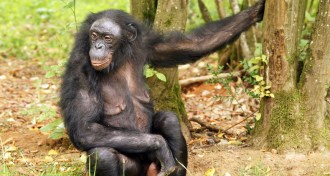 Animals
AnimalsBonobos feel the beat
Some animals, like cockatoos and bonobos, are able to move to the groove. Studying animals that keep the beat might tell us whether musical rhythm is really widespread.
-
 Ecosystems
EcosystemsArctic melting may help parasites infect new hosts
Grey seals and beluga whales encounter killer microbes as ranges change.
-
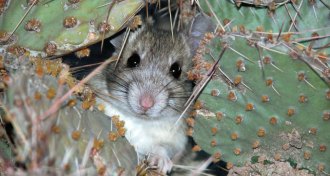 Animals
Animals‘Packrat’ is the new term for ‘really organized’
The more eclectic hoarder species segregate pantry from lumber room from junk museum. The result is more orderly than the closets of some human packrats.
By Susan Milius -
 Animals
AnimalsIt doesn’t always take wings to fly high
Microbes, bees, termites and geese have been clocked at high altitudes, where air density and oxygen are low.
-
 Neuroscience
NeuroscienceVideo games could boost reading skills in dyslexia
People with dyslexia, a developmental reading disorder, have a harder time switching from visual cues to auditory ones, but the constant shifts in video games may help improve the how quickly individuals perceive the change.
-
 Animals
AnimalsIn crazy vs. fire, the ant with the detox dance wins
Tawny crazy ants pick fights with fire ants and win, thanks to a previously unknown way of detoxifying fire ant venom.
By Susan Milius -
 Neuroscience
NeuroscienceGene adds wrinkle to brain development
Mutations in the gene GPR56 results in misshapen folds in the brain tied to intellectual and language disabilities.
-
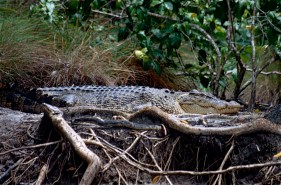 Animals
AnimalsSome crocodiles go out on, or up, a limb to hunt, keep warm
Observations of crocodiles from Australia, Africa and North America show that four species could waddle up and along branches above water. They do this to regulate their temperature and look for prey, scientists suggest.
-
 Neuroscience
NeuroscienceWays of seeing the brain inspire notions of how it works
As scientists have developed more sophisticated methods and ideas, their understanding of how the brain works has shifted too.
-
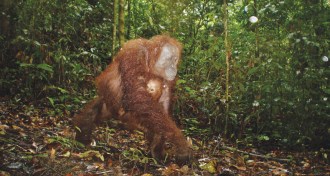 Animals
AnimalsOrangutans hit the ground walking
A surprising affinity for moving across the forest floor may aid threatened apes.
By Bruce Bower -
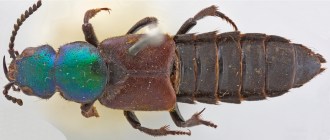 Life
LifeHappy birthday, Mr. Darwin
A male rove beetle that Charles Darwin collected in Argentina in 1832 has finally turned up and been named in his honor.